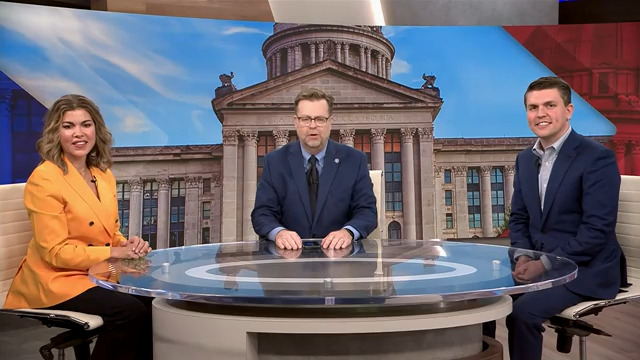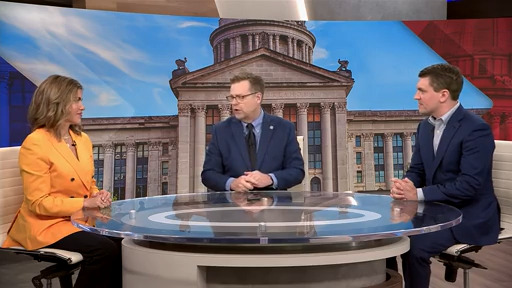Education and Energy: Where can Oklahoma improve?
Exploring Oklahoma’s struggle in education: from last-place ranking to reform efforts, how to achieve meaningful improvement.Saturday, July 26th 2025, 7:02 pm
With recent studies on education and debates around energy policy, Scott Mitchell invited Sen. Avery Frix (R-O.K.) and Rep. Suzanne Schreiber (D-O.K.) to understand where Oklahoma stands on these issues and what people should learn about their impact within the state.
Watch the full 2-part conversation above, or follow along for the key takeaways:
Oklahoma Ranks 50th in Education:
The discussion opens with concern that Oklahoma ranks last in education nationally—a point both participants agree is troubling and unacceptable.
Leadership and Accountability Issues:
The panelists attribute Oklahoma’s poor ranking partly to a lack of strong, effective leadership at the top. There is criticism of the state superintendent for focusing on issues unrelated to educational results, and it’s noted that, despite legislative investment, leadership needed to drive outcomes has been lacking.
Mississippi as an Example:
Mississippi, historically ranked low with Oklahoma, is highlighted as a neighboring state that has improved significantly, suggesting Oklahoma could do the same with appropriate leadership and reforms.
No Single Solution:
There’s acknowledgment that improvement will take time and there’s no “silver bullet.” While record investments and policy reforms have been made, panelists stress the need for ongoing effort and collaboration to drive meaningful improvement.
Upcoming Election Context:
The speakers note that, with an election year ahead, discussions and decisions about education are influenced by the political calendar.
Key Back-to-School Issues:
- Teacher Pay and Retention: Teacher pay is important but not the sole issue for recruiting and keeping teachers. Other non-monetary factors also need to be addressed.
- School Security: Oklahoma is commended for prioritizing school security, aiming to reassure parents about student safety.
- Cost of Living: Parents face challenges related to the high cost of living, especially back-to-school expenses like supplies and clothing.
- Teacher Shortages and Turnover: The significant concern for many parents is whether qualified teachers will be consistently present. A personal anecdote is shared about the disruption caused when a student had four different algebra teachers in a single year.
Energy Policy & Infrastructure
- Alan Armstrong (Williams Companies chairman) attributes rising energy rates to poor political decisions that block energy infrastructure—not to Oklahoma’s natural gas prices.
- Oklahoma faces growing challenges with renewable energy projects, particularly in eastern Oklahoma, due to a lack of statewide regulations such as setback requirements.
- Legislative efforts to address renewable project setbacks were introduced but did not pass; further attempts are expected next year.
- Armstrong underscores that “bad politics” is hampering energy development in the U.S., and warns against reliance on a single source of energy.
Renewable Energy & Property Rights
- The debate around renewable energy is intensifying, especially concerning the property rights of those hosting renewable projects versus their neighbors.
- The media is reported to focus more on the concerns of neighboring landowners.
Public Opinion & Political Platforms
- Polls show that Oklahomans favor an “abundance energy” platform, supporting a diverse energy sector.
- This approach aligns with Governor Stitt’s policies and receives positive feedback from pollsters.
Health Policy & Economic Concerns
- There is public concern about changes from Washington, DC, particularly Medicaid cuts that could lead to over 130,000 Oklahomans losing health insurance.
- Potential Medicaid reductions could negatively impact rural and urban hospitals, increase uncompensated care, and harm the overall health of Oklahomans.
Oklahoma’s Economic Outlook
- Despite challenges, Oklahoma's economic outlook is optimistic: low unemployment, increased state revenues, recent tax cuts, and an improved state bond rating.
- Ongoing efforts are needed to improve mental health services and education outcomes.
More Like This
July 26th, 2025
June 30th, 2025
Top Headlines
July 26th, 2025
July 26th, 2025
July 26th, 2025
July 26th, 2025










